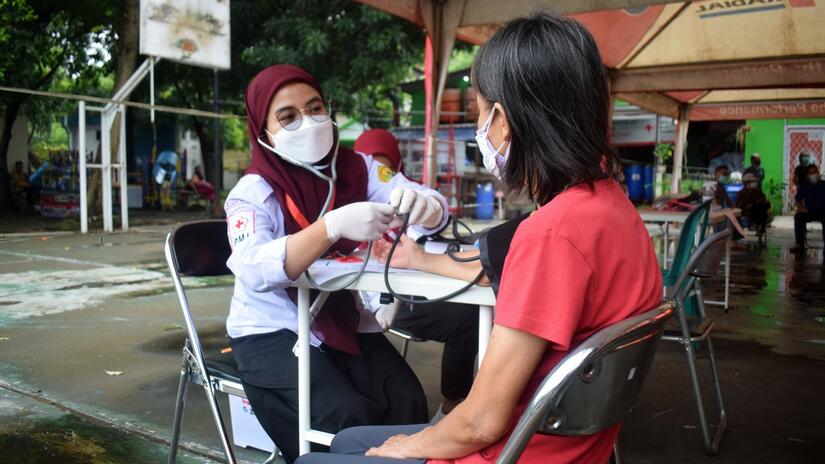The IFRC was born in the wake of the 1918 pandemic, and epidemic preparedness and response are part of our DNA.
We have a historic opportunity to reform the global health architecture this year. Let me propose 3 lenses through which we should measure success:
- First, epidemics thrive on socio-economic and geographic inequities, affecting levels of trust, access to health services and quality of surveillance - let us not ignore this and over-medicalize our discussions.
- Second, it is crucial that domestic disaster laws and frameworks, including public health emergencies, go beyond IHR capacities to be truly comprehensive and inclusive.
- Finally, having effective vaccines, tests and treatments available at scale is critical, but it will not ensure their uptake or availability in communities. Community engagement and health systems are key to leaving no one behind.
The IFRC and its 192 member National Societies stand ready to share their legal and health expertise and recommendations to ensure reforms are not only powerful on paper, but transformative in reality.
--
Click here to learn more about the IFRC's work in health and care.

